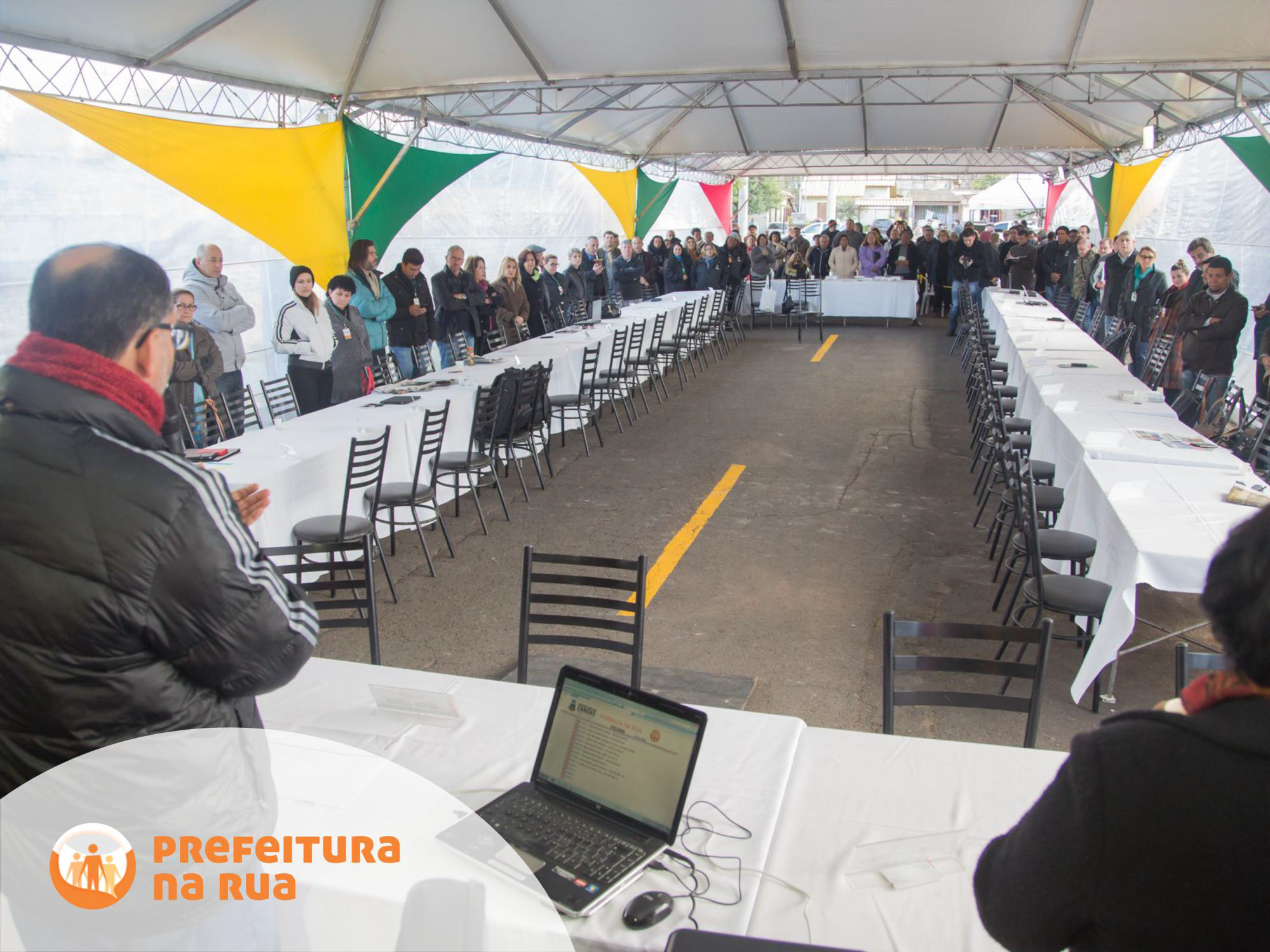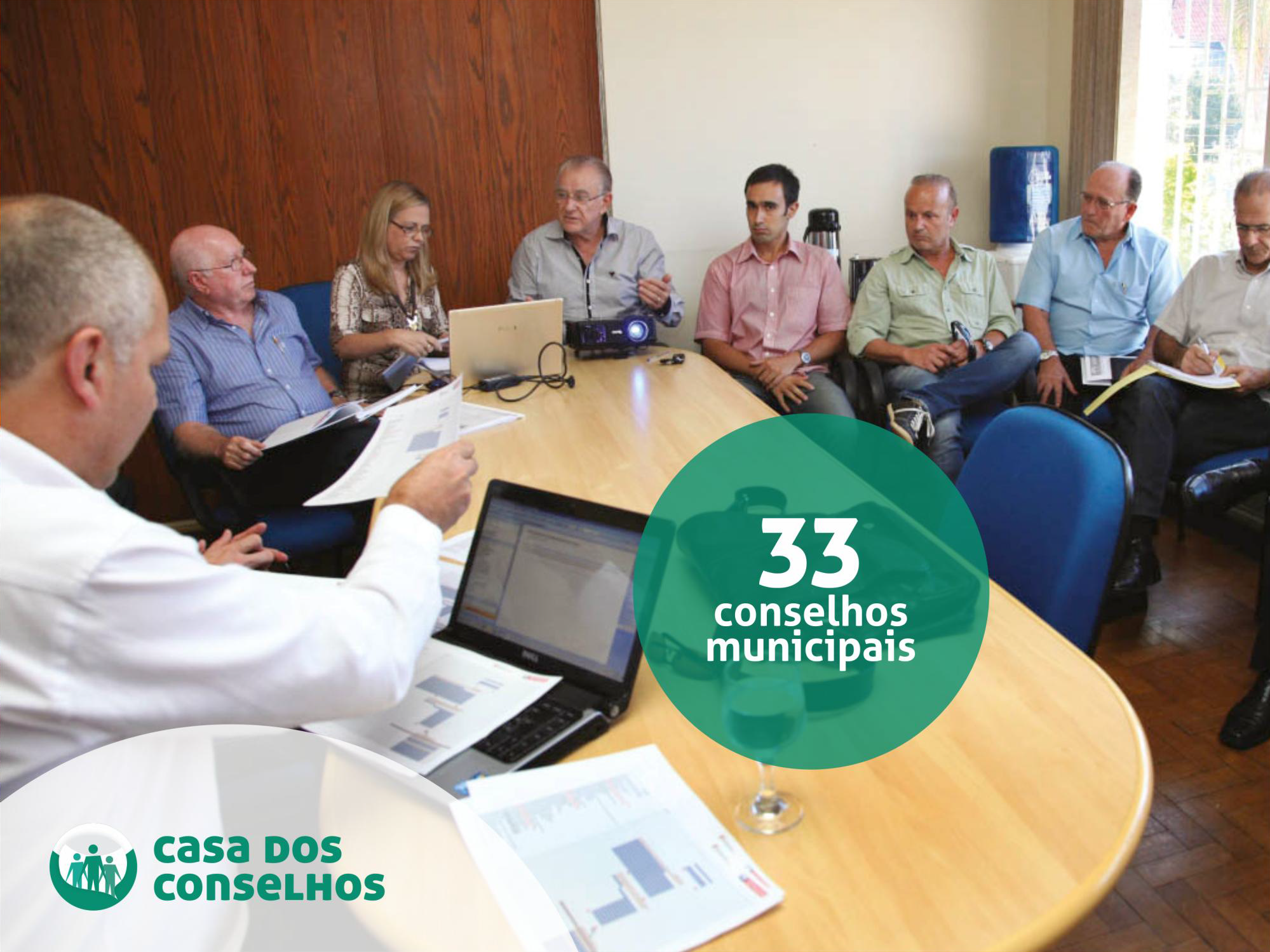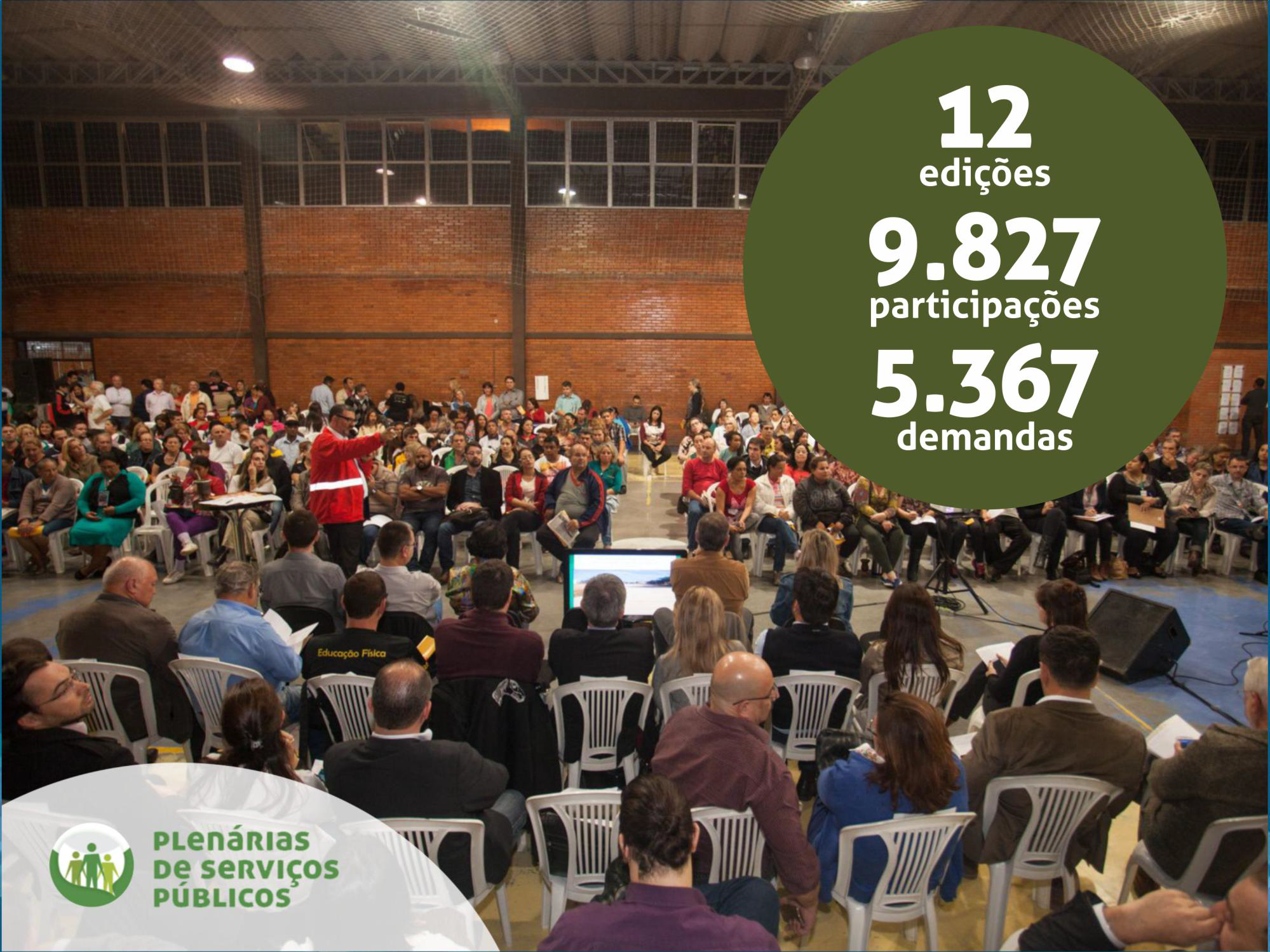This experience won the 10h IOPD Award (2016)
Description
The city of Canoas is part of the metropolitan area of Porto Alegre, capital of Rio Grande do Sul, Brazil. With a population of over 320,000 inhabitants, the city is an industrial center and has 38 ° Gross Domestic Product - GDP among all Brazilian cities and 3rd of Rio Grande do Sul with a diversified economy. Canoas is now national and international reference in citizen participation and transparency in public management, with innovative tools. The city also stands as an educational pole with the second state educational network.
Since 2009, the local administration started an innovative project in local management, based on transparency, citizen participation, social inclusion and qualification of public services. The municipality has advanced in the process of citizen participation with the creation of channels of communication and interaction with citizens to address and find solutions to the challenges of a growing city.
The municipal administration has then implemented the System of Popular and Citizen Participation that involves a set of initiatives oriented for decentralization of management, providing a rapprochement between the government and civil society. The system, which each year adds new forms of participation, now covers 13 tools organized into five areas, according to the characteristics, methods of planning, level of participation and monitoring demands.

The System of Popular and Citizen Participation consists of the following tools:
Collective Tools Action Lawsuits
- Participatory Budget: Citizenship aims priority works and services for the neighborhood and for the city choosing an annual vote. The city is mapped into 15 micro-regions, reserving for each one million reais, reached at the end, adding the work of the city with over a million reais, 16 million reais, and equivalent to a third of the free resource annual investment for the municipality. Already performed 5 editions, where 102,987 people voted. Highest rate in Brazil of participation: 10% of voters of Canoas vote PP.
- Better Neighborhood: Citizens can decide where to allocate the 50% of the IPTU (Tax on Predial Property and Urban Territory) for the project in his neighborhood, for example. Each project cannot exceed 200,000 reis, having obligatory of counterpart of 20% of the proposing entity in volunteer work and donations of materials or services. At each year, through public selection, approved construction projects for the community that has social impact, public interest and community use.
- Business estates: The industrial areas of the city have special attention, with this semi-annual meetings are organized in which all companies are invited to participate, and where representatives of workers and companies present claims and existing problems in the local. As part of these process 238 companies in 6 polygons had participated.
- Plenary of Public Services: Plenary are conducted every semester for each quadrant of the city. Management is accountable for the goals achieved, presents the status of the works of each region and citizens have criticisms and suggestions in a forum together with the Mayor and the Secretaries. In total, totaling 12 editions involving 9,827 people and 5,367 claims.
Individual applications tools
- Mayor on the Street: Every Saturday, the Mayor, Vice Mayor and municipal secretaries make attention to community in a structure installed on the street or in a place in one of the quadrants of the city. The idea is to demystify the authority, leaving the cabinets, office managers and bring citizens to meet the demands and expedite the resolution of the same. Since 2009, there have been 277 editions at Saturday with more than 29,000 attendances.
- Mayor in the station: Every Thursday, from 6h30min to 8h30min, the Mayor dialogues in open space and accessible to all workers and underground users, where attention is realized, every week, in one of the subway stations of the city. This tool was implemented in 2012 and totally 87 editions with 5.225 attended people.
- Public Hearings: In a model of participatory democracy is fundamental to open spaces of public power for the population as well, with the challenge to better comprehend the demands of citizens, Mayor attends individually in his cabinet 20 citizens every Monday. Since 2009, there have been 221 editions registered 3,302 / people attended.

Collaborative tool
- Agora in Rede: virtual tool that allows online dialogue between the population and the Mayor and the Municipal secretaries weekly. It allows access to videos, among other multimedia possibilities for interaction on issues involving the city. Already they made 52 editions with 9,357 registered users.
Strategic Development Tools
- Congress of the City of Canoas 2011-2021: The 1st Congress of the City has conducted discussions over a year, where citizens proposed and discussed the future of the city. This process ended with a conference with over 600 delegates, where 104 strategic actions were established and 43 and initiatives shaping the strategy of the city for the next 10 years.
- Participatory Multi-Year Plan: It is a tool created to implement programs and strategies aimed population as necessary. In each neighborhood, open community meetings are organized to hear what people suggest as priority investments for the next four years. In the 2009 PPA it registered 2.782 participations and in the 2014 PPA, 1608 participations.
- Sectorial plans: It is the realization of thematic regional forums in every area of government, such as health, safety and education, to discuss priorities and structure for the provision of services, concluding with a final conference of municipal plans in a particular area of government. Four participatory plans were made: of public safety, health, education and sanitation, adding 4.492 citizens that have participated.
Coordination tools
- Council for Economic and Social Development: It is a council that brings together 50 professionals from different areas in a transparent and collaborative dialogue to asses and reviews the public policies of the municipality. The meetings are organized every two months, where the main projects to be implemented in the city is discussed. Already the made 41 editions with 50 counselors and 30 special guests to each meeting.
- House of the Councils: A space that brings together 33 municipal councils and provides human resources and necessary materials so that the work of the counselors is realized with more effectively.
In seven years of the current municipal administration, more than 170 thousand people participated of the tools of the System of Popular and Citizen Participation.

 10th.
Winner
10th.
Winner


